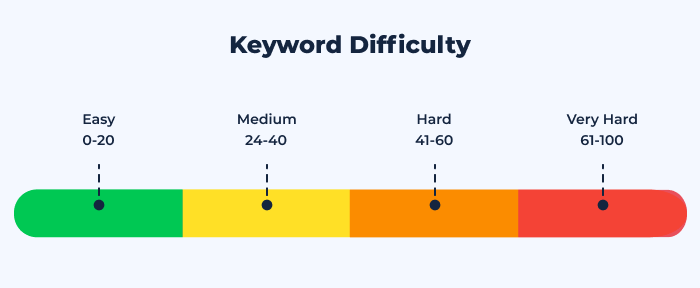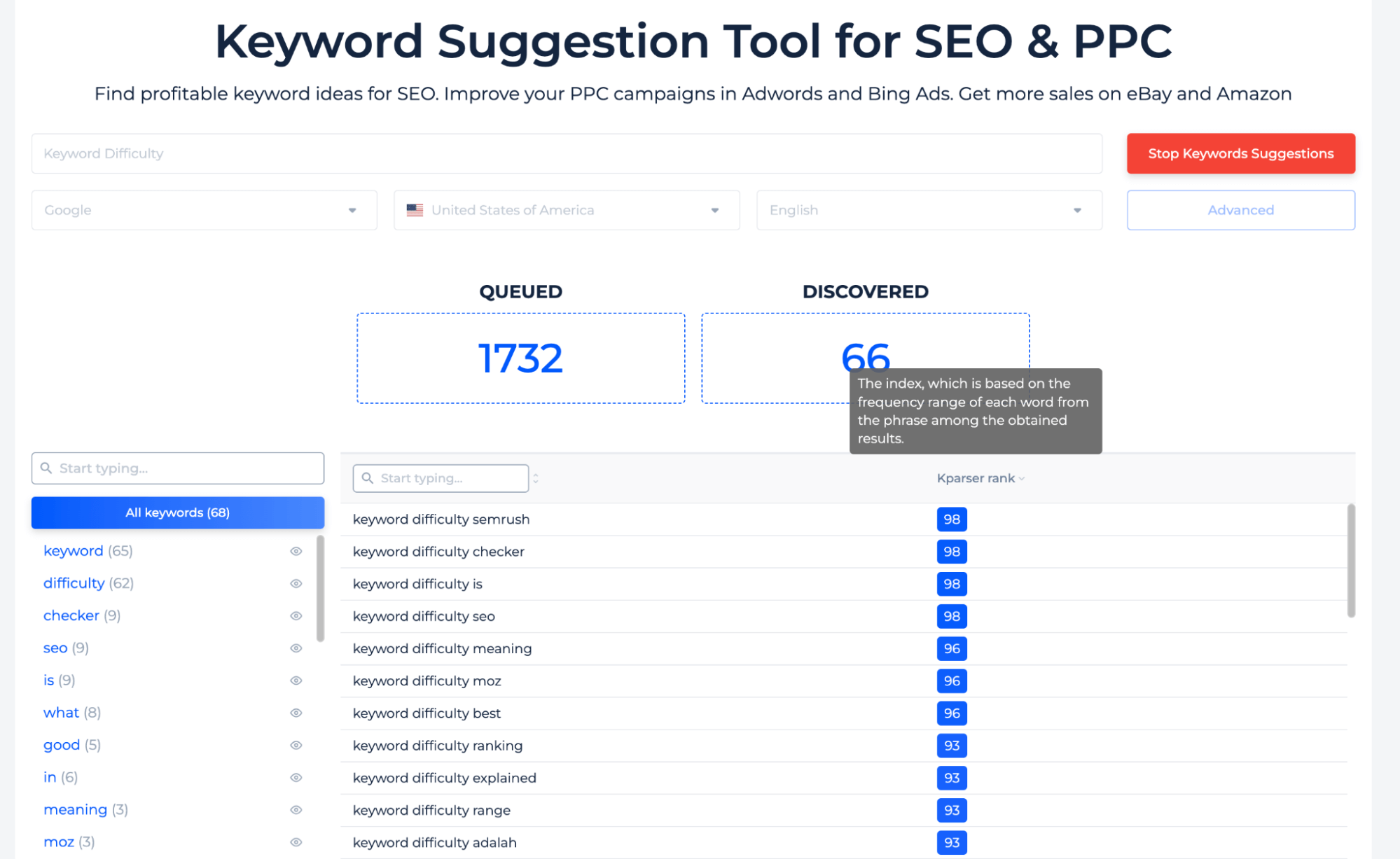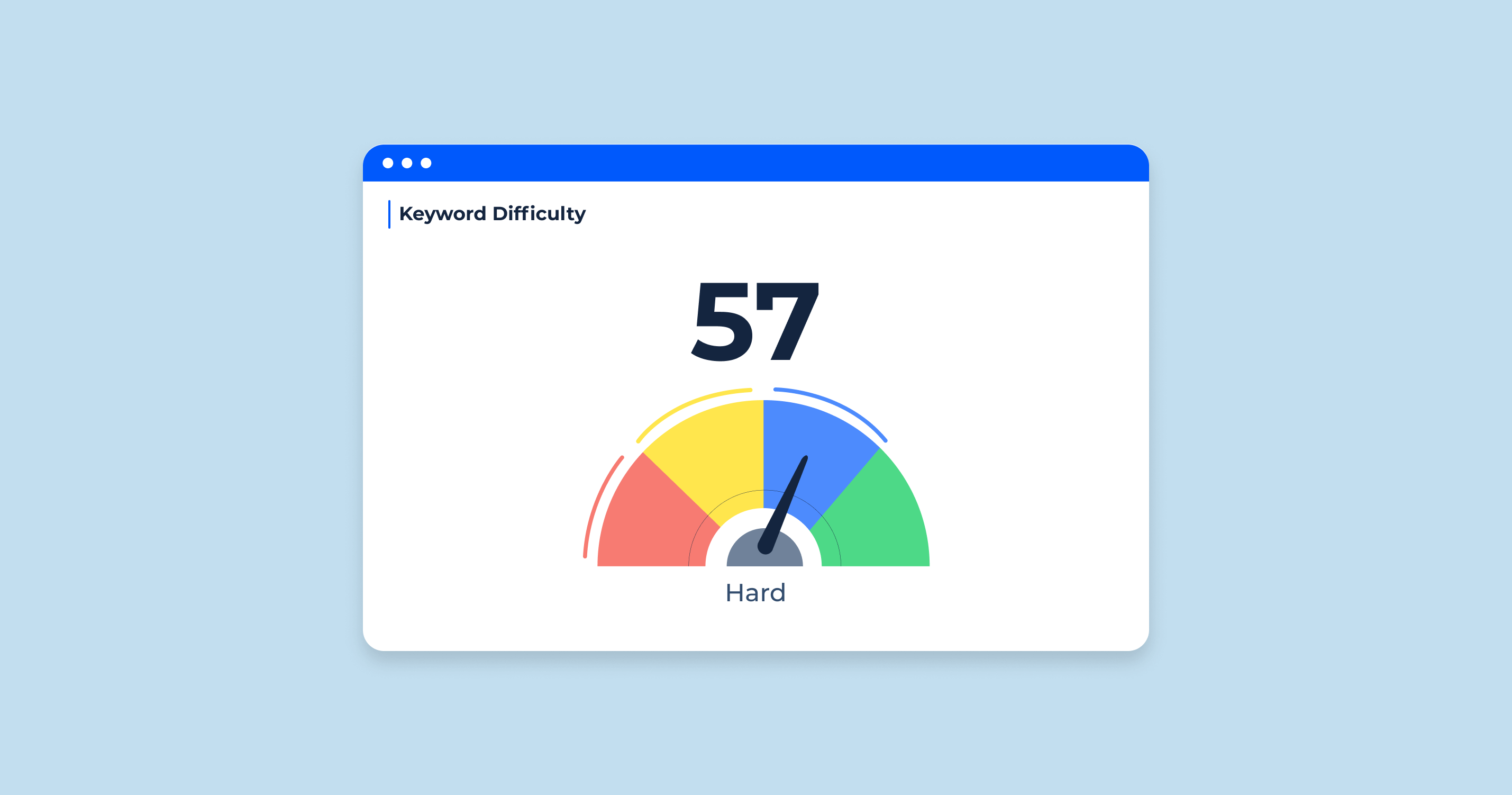What is Keyword Difficulty?
Keyword Difficulty is a metric used in SEO to determine how challenging it would be to rank organically for a specific keyword or phrase due to competition. It’s often represented as a numerical value, with higher values indicating higher difficulty. This metric helps marketers and webmasters identify keywords they have a realistic chance of ranking for, enabling more effective SEO strategies.
Determinants of Keyword Difficulty
Keyword Difficulty is influenced by various factors, each contributing to how hard or easy it is for a webpage to rank for a specific keyword. Analyzing these determinants allows SEO professionals to devise more effective and targeted SEO strategies.
Influencing Factors for Ranking Potential
Several factors collectively influence the ranking potential of a keyword, and understanding them is key to mastering SEO.
Competitors Analysis
One of the primary factors is the competition. If multiple well-established websites are already ranking for a keyword, it will be more challenging for new or less authoritative sites to rank for the same keyword. Analyzing competitors helps in identifying gaps in their strategies and discovering opportunities to outrank them by offering better content and user experience.
Content Quality
The quality of the content also plays a significant role in Keyword Difficulty. Search engines prioritize content that is relevant, informative, and valuable to users. High-quality content that effectively addresses user intent is more likely to rank higher, whereas poor-quality, irrelevant content is likely to struggle.
Search Intent
Understanding and aligning with the user’s search intent is crucial. When the content aligns well with what users are looking for, it is more likely to be ranked higher by search engines. It’s crucial to understand whether users are looking for information, wanting to make a purchase, or seeking a particular website and to tailor the content accordingly.
Backlink Profile
A website’s backlink profile—essentially, the number and quality of inbound links from other sites—also significantly impacts keyword ranking. Websites with numerous high-quality backlinks are generally viewed as more authoritative and trustworthy by search engines, which can make it easier for them to rank for competitive keywords.
Measuring Keyword Difficulty
The process of measuring Keyword Difficulty involves analyzing several aspects like search volume, competition, content quality, and backlink profile, to name a few. This measurement is crucial to gauge the competitiveness of a keyword and understand how hard it might be to achieve high rankings for it in search engine results. Various methods and tools can be employed to check keyword difficulty accurately, providing SEO professionals and website owners with insightful data to formulate effective SEO strategies.

Interpreting Keyword Difficulty Scores: What is a Good Score?
Interpreting Keyword Difficulty scores correctly is pivotal for SEO success. Generally, a lower score represents less competition and, consequently, a higher likelihood of ranking for the keyword, while a higher score indicates a more competitive landscape. However, what is considered a “good” score can be subjective and largely depends on individual goals, resources, and the overall SEO strategy. Typically, keywords with a difficulty score under 30 are considered easy, between 30 and 70 are medium, and above 70 are hard. When choosing which keywords to target, it’s crucial to balance the difficulty score with other factors like relevancy, search intent, and potential traffic and conversion opportunities.
A “good” keyword is one that is relevant, aligns with the user’s intent, has decent search volume, and has a difficulty score that matches your resource capabilities and SEO objectives.
Practical Application: Finding Easy-to-Rank Keywords
Identifying and targeting easy-to-rank or low-competition keywords is a practical and effective strategy, especially for new websites or those with lower domain authority. It enables websites to gain visibility, attract organic traffic, and gradually build domain authority. Implementing strategies to find such keywords and integrating various SEO tools can significantly enhance the likelihood of achieving higher rankings and better SEO results.
Find Profitable Keyword Ideas with Keyword Suggestion Tool for SEO

The Keyword Suggestion Tool is an invaluable asset for digital marketers and content creators alike. With an intuitive interface, it effortlessly suggests keywords tailored to your niche, amplifying your content’s reach and SEO efficiency. By providing relevant search terms and their respective search volumes, this tool is an essential companion in crafting content that not only resonates with audiences but also ranks higher. Dive into a sea of keyword opportunities and let your content stand out! Give it a try and optimize your strategy today.
Summary
In conclusion, understanding and optimizing for keyword difficulty are crucial for achieving SEO success. This article has explored what keyword difficulty is, why it’s important, its determinants, and how to measure it effectively using tools like Ahrefs. Practical strategies for finding easy-to-rank keywords and integrating SEO tools have also been discussed, along with resources and guides for both beginners and advanced professionals to deepen their knowledge in keyword research and optimization
